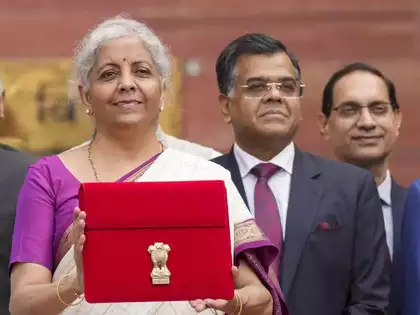The Union Budget 2024-25, presented by Finance Minister Nirmala Sitharaman, introduced several significant reforms in the realm of indirect taxation, with the primary aim of fostering economic growth, simplifying tax structures, and easing the compliance burden on taxpayers. This article delves into the key changes and their potential impact on various sectors.
Customs Duties Reductions and Exemptions
One of the notable highlights of the indirect tax proposals in the Budget 2024-25 is the reduction and exemption of customs duties on critical goods. These changes are intended to support domestic manufacturing, reduce the cost of essential imports, and stimulate various industries.
1. Mobile Phones, Mobile PCBA, and Chargers:
– The basic customs duty has been reduced from 20% to 15%.
2. Gold and Silver:
– The customs duty has been significantly reduced from 15% to 6%, aimed at curbing smuggling and making these precious metals more affordable.
3. Platinum:
– The customs duty on platinum has been lowered from 15.4% to 6.4%.
4. Broodstock, Polychaete Worms, Shrimp, and Fish Feed:
– These items have seen a reduction in basic customs duty from 10%, 30%, and 15% respectively to a uniform rate of 5%, supporting the aquaculture industry.
5. Alkali or Alkaline Earth Metals, and 25 Rare Earth Minerals (like Lithium):
– Exempted from customs duty to encourage the production of advanced batteries and other critical technologies.
6. Capital Goods for Manufacturing of Solar Panels:
– Exempted from customs duty, promoting the growth of renewable energy sectors.
7. Cancer Drugs (Trastuzumab Deruxtecan, Osimertinib, and Durvalumab):
– Exempted from customs duty, reducing the cost of treatment for cancer patients.
8. Ferro Nickel and Blister Copper:
– Basic customs duty reduced from 2.5% to nil, supporting the manufacturing sector.
9. Ammonium Nitrate:
– The duty has been increased from 7.5% to 10% to regulate its usage and promote safer handling practices.
10. PVC Flex Banners:
– The customs duty has been raised from 10% to 25% to protect domestic manufacturers.
11. PCBA of Specific Telecom Equipment:
– The duty has been increased from 10% to 15%, encouraging local production.
Major GST Reforms and Amendments
The Budget 2024-25 also brings several significant changes to the Goods and Services Tax (GST) framework, aiming at simplifying compliance, broadening the tax base, and ensuring greater transparency.
1. Exclusion of Un-Denatured Extra Neutral Alcohol:
– Used in the manufacture of alcoholic liquor for human consumption, it is now kept out of the purview of GST.
2. Introduction of Section 74A:
– This section addresses tax not paid, short paid, erroneously refunded, or wrongly availed input tax credit for the financial year 2024-25 onwards. It includes provisions for issuing notices and determining penalties.
3. Empowerment through Section 11A:
– This new section allows the government to regularize non-levy or short levy of central tax due to prevalent general practices in trade.
4. Amendment in Section 13(3):
– Defines the time of supply as the date of the invoice for supplies where the recipient issues the invoice.
5. Retrospective Changes to Section 16:
– Allows ITC claims on invoices or debit notes for specific fiscal years, provided they meet certain filing deadlines.
6. Block Credits under Section 17(5):
– ITC is now not allowed on taxes paid under Section 74 for demands up to FY 2023-24.
7. New Proviso in Section 30(2):
– Introduces conditions for the revocation of GST registration cancellation.
8. Time Limit for RCM Invoices:
– Section 31(3)(f) now includes a time limit for issuing invoices under the reverse charge mechanism.
9. Mandatory Filing of GSTR-7:
– TDS under GST must be filed monthly, even if no TDS is deducted.
10. Restriction on GST Refunds:
– Section 54(15) restricts refunds of unutilized ITC or IGST for zero-rated supplies of goods subject to export duty.
11. Authorizing Representation under Section 70(1A):
– Allows a summoned person to authorize another to appear on their behalf.
12. Introduction of Sections 73(12) and 74(12):
– Limits the applicability of demand and recovery provisions for determining tax demands up to FY 2023-24.
13. Reduction in Pre-Deposit for Appeals:
– The pre-deposit requirement for filing appeals before the appellate authority is reduced, aiming to ease the financial burden on taxpayers.
14. Reforms in Anti-Profiteering Measures:
– Section 171 changes ensure better handling of anti-profiteering cases.
15. New Items in Schedule III:
– Declares certain insurance and reinsurance transactions as neither supply of goods nor services, reducing tax complexity.
The indirect tax reforms outlined in the Budget 2024-25 are poised to bring about significant changes in the economic landscape. By reducing customs duties on essential imports and refining the GST framework, these measures aim to boost domestic manufacturing, support critical industries, and simplify compliance for taxpayers. As these reforms take effect, their impact will be closely watched by businesses and policymakers alike.






















